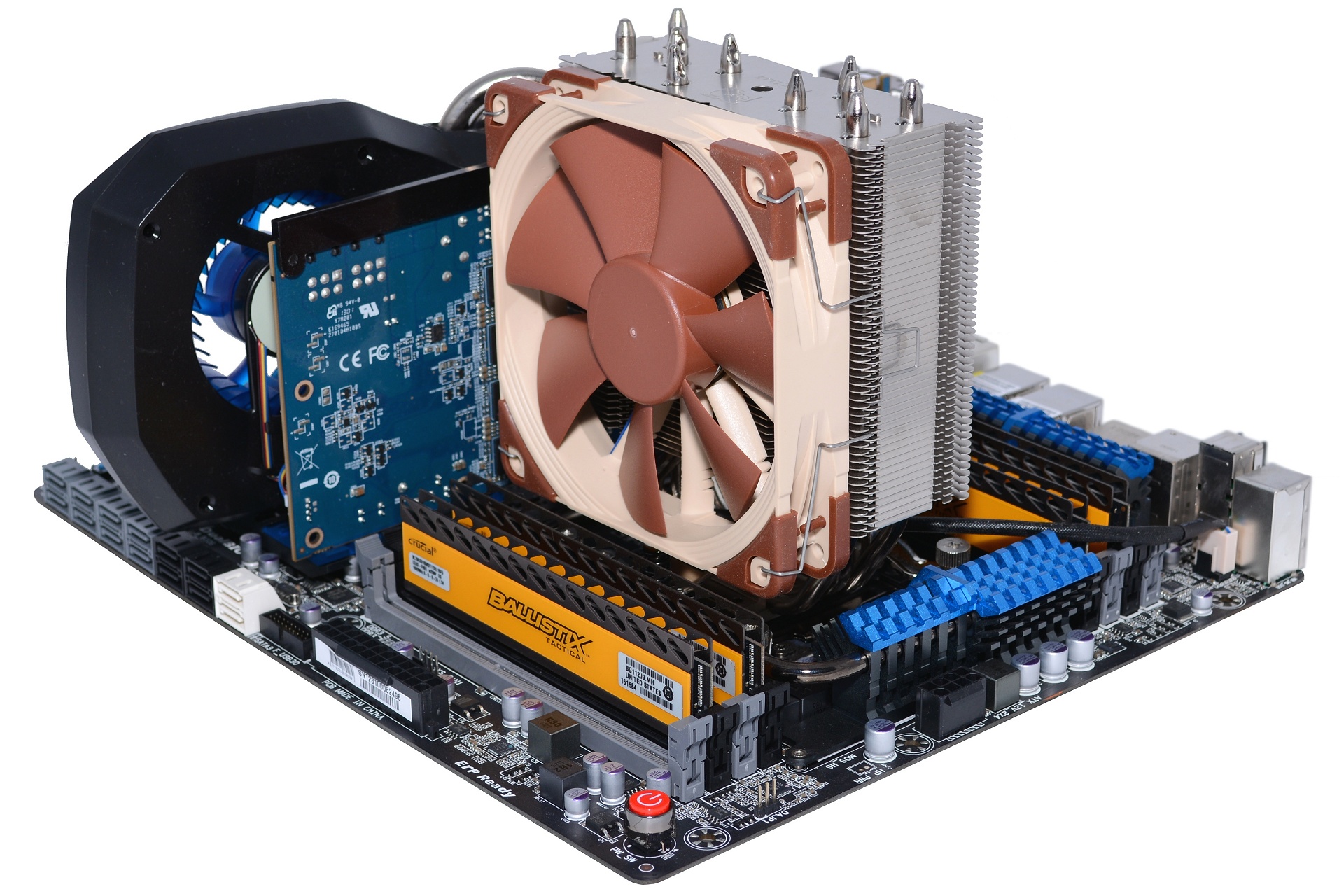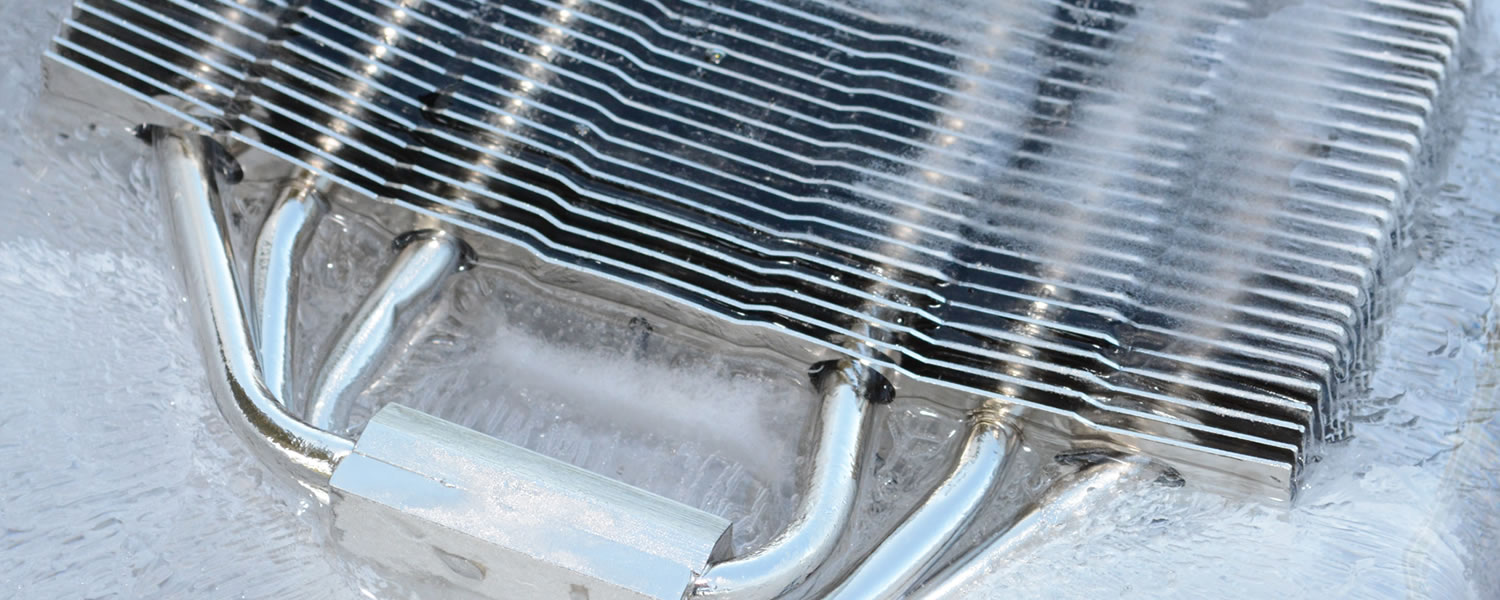And The Best Cooler Is...
It makes sense that Intel doesn't include its RTS2011AC heatsink as part of the standard bundle with LGA2011 processors, as most users wouldn't want to use something so underpowered. Most enthusiasts would undoubtedly rather put the $30 toward a cooler with a whole lot more potential for only a little more cash.
The reason Intel's solution is underwhelming stems from the company's belief that it's unwise to hang a kilogram of metal on your motherboard. We can agree with that sentiment in some situations – if you travel a lot, for instance – but we're willing to bet that most LGA2011 users stay fairly well put with their system.

Either way, we're comfortable with scrapping the hot and noisy RTS2011AC for an aftermarket offering. For only $5 more than the RTS2011AC, you could get Silverstone's Argon AR01, which shed 15 degrees off the stock cooler's i7-4960X load temperatures and at 420g, it's not exactly a PCB buster if that's a genuine concern.
| Model | Price | Performance | Noise | Install | Compatibility | Total |
| Noctua NHU14S | 3 | 5 | 4 | 3 | 4 | 19 |
| Silverstone Argon AR01 | 5 | 3 | 2 | 4 | 5 | 19 |
| Silverstone Argon AR03 | 4 | 4 | 1 | 4 | 5 | 18 |
| Noctua NH-U12S | 3 | 3 | 4 | 3 | 5 | 18 |
| Thermalright Macho Rev.A | 4 | 4 | 4 | 4 | 2 | 18 |
| Xigmatek Dark Knight | 4 | 3 | 2 | 3 | 5 | 17 |
| Silverstone Heligon HE02 | 3 | 2 | 5 | 4 | 1 | 15 |
| Thermalright Archon SB-E X2 | 2 | 5 | 3 | 2 | 3 | 15 |
| Thermaltake FrioOCK | 3 | 2 | 1 | 4 | 4 | 14 |
| Thermaltake NiC C5 | 4 | 1 | 1 | 3 | 4 | 13 |
Of the remaining models, four cost $50 to $55 (the Xigmatek Dark Knight, Thermalright Macho Rev.A, Silverstone Argon AR03 and Thermaltake NiC C5) while the remaining five cost $70 to $85 (we'll get to these in a minute). In the more affordable group, the Macho Rev.A and Argon AR03 scored the best.
The Dark Knight was no pushover, but its performance and ease of installation were definitely a notch behind its nearest rivals. The Macho Rev.A and Argon AR03 seem somewhat tied initially as the former loses points for compatibility due to its massive size, while the latter was disappointingly noisy.

However, when you realize you have to reduce the AR03's fan speed to achieve a tolerable operating volume, we'd say the Macho Rev.A has an edge, making it the best $50 heatsink available in our eyes.
Folks with $70 to $85 for a cooler – most LGA2011 owners we suspect – have plenty of options to consider, with the Thermalright Archon SB-E X2 being the most expensive in this roundup. We wanted to like the Archon SB-E X2, but its high price and awkward installation aren't worth its key benefits (better-than-average system compatibility and an operating volume that tied the Macho Rev.A).

Silverstone's Heligon HE02 is a little harder to criticize considering it ships without a fan, but it falls short on compatibility and to some extent, performance. Although it could technically be seen as one of the best performing heatsinks we tested in that it managed to passively cool the i7-4960X, it doesn't deserve to be directly compared with actively cooled solutions. If more heatsinks could handle that job without a fan, we would have reserved the HE02 for that roundup, but few such models exist.
The Thermaltake FrioOCK and NiC C5 tanked, offering poor thermal and noise performance, which leaves the Noctua NH-U12S and NH-U14S. The first scored well, matching the Macho Rev.A and Argon AR03 for points and outclassed both in operating volume, which was barely audible. Picking between the NH-U12S and the Macho Rev.A wouldn't be easy, though I'd probably opt for the Macho Rev.A.

Best of the Best: Noctua NH-U14S
Best in Class: Thermalright Macho Rev.A
That leaves the NH-U14S standing as the best cooler of our shootout, assuming price isn't an issue. It may cost $75, but the NH-U14S is worth every penny if you want the best performance, operating volume and great compatibility. For whatever it's worth, regardless of whether you buy the best or worst aftermarket option, it'll probably still run circles around the stock coolers from Intel or AMD.
